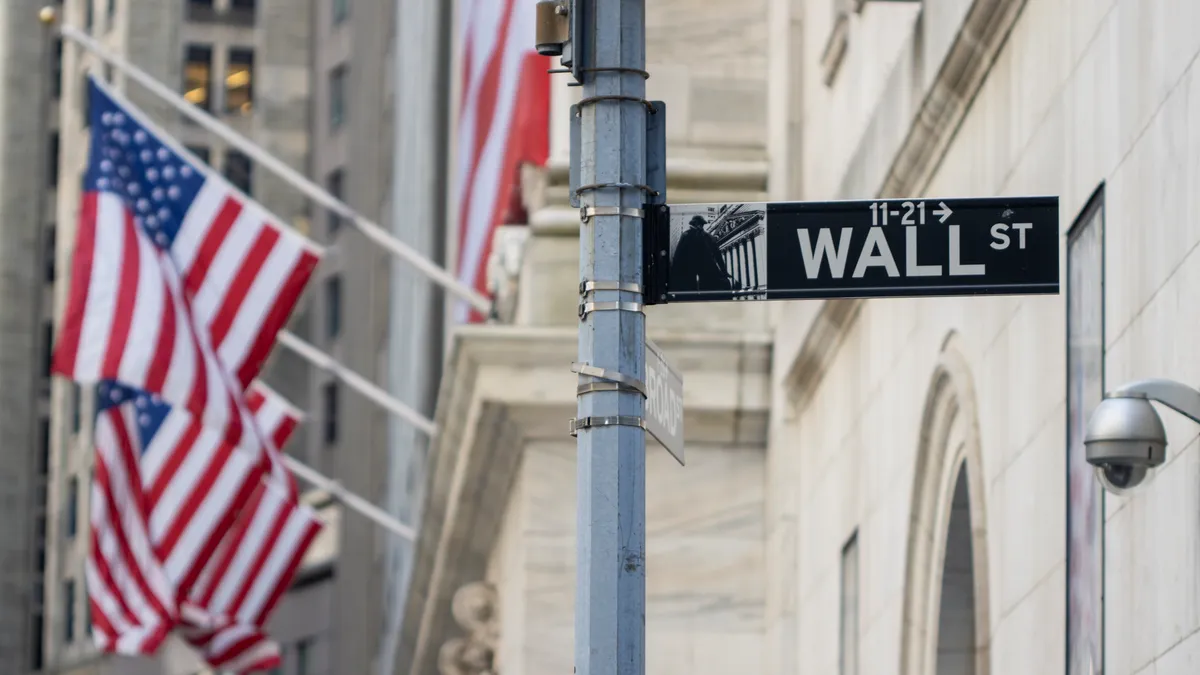Dive Brief:
- Despite the political backlash, U.S. companies have either maintained or increased sustainability investments since the beginning of 2025, according to a survey of 400 global executives at U.S. corporations released Tuesday by sustainability ratings and compliance firm EcoVadis.
- Nearly half of the respondents (48%) said their company’s sustainability investments remain unchanged, and 31% said their company is investing more in sustainability this year, “but promoting less.” Another 8% of respondents reported their company is still making sustainability investments but not talking publicly about it.
- The EcoVadis 2025 U.S. Business Sustainability Landscape Outlook found that despite the Trump administration’s recent shifts on climate and sustainability policy, companies still see supply chain sustainability as an operational value-add. However, they have been less likely to publicize those efforts, or are “greenhushing.”
Dive Insight:
EcoVadis said the “greenhushing” occurring alongside increased investments shows many companies “see it as a behind-the-scenes lever for long-term growth.” More than 6-in-10 respondents (65%) reported viewing supply chain sustainability as a “competitive advantage,” according to the survey.
The firm surveyed executives at U.S. companies with over $1 billion in revenue who are responsible for decision-making across their company’s procurement, sustainability, supply chain, finance, risk and compliance and IT departments, according to the report and an accompanying press release.
Among executives at the director and VP level, 62% of respondents said they believe “supply chain sustainability helps attract and retain customers.” That view was shared by 59% of C-suite executives who responded.
“Even as the debate over business sustainability heats up, executives are focused on the reality — sustainability is what keeps supply chains running and customers on board,” EcoVadis Co-CEO Pierre-François Thaler said in the Tuesday release.
Only a small minority of respondents surveyed said their companies have either decreased sustainability investments in 2025 (7%) or are making the minimum investments required for compliance (6%).
The belief in sustainability as “directly” supporting business growth and development is shared by 52% of finance professionals who responded, and 29% of finance professionals believing it’s “financially neutral.”
“Corporate leaders agree that supply chain sustainability isn’t just about values or regulations — it’s also about staying competitive in a shifting global market,” the report said.
While the Securities and Exchange Commission has reversed course on its climate-risk disclosure rule and withdrawn a proposed ESG disclosures rule, 47% of C-suite executives believe that rolling back ESG oversight will lead to increased supply chain disruptions, EcoVadis found. Thirty-five percent of all respondents said ESG regulatory rollbacks “could backfire,” and 28% view the rollbacks as risky.
A recent survey of 125 large U.S. and multinational companies by The Conference Board found that 80% of respondents had altered their ESG strategies since January in response to policy changes. However, just 8% of respondents to The Conference Board survey reported doubling down on ESG investments.












